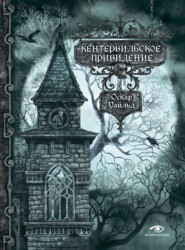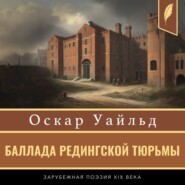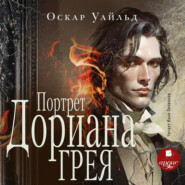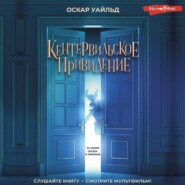По всем вопросам обращайтесь на: info@litportal.ru
(©) 2003-2024.
✖
A Critic in Pall Mall: Being Extracts from Reviews and Miscellanies
Настройки чтения
Размер шрифта
Высота строк
Поля
I was told she was his sweetheart.
They were on the eve of marriage.
She was quiet as a statue,
But her lip was gray and writhen.
In this poem, the rhythm and the music, such as it is, are obvious – perhaps a little too obvious. In the following I see nothing but ingeniously printed prose. It is a description – and a very accurate one – of a scene in a hospital ward. The medical students are supposed to be crowding round the doctor. What I quote is only a fragment, but the poem itself is a fragment:
So shows the ring
Seen, from behind, round a conjuror
Doing his pitch in the street.
High shoulders, low shoulders, broad shoulders, narrow ones,
Round, square, and angular, serry and shove;
While from within a voice,
Gravely and weightily fluent,
Sounds; and then ceases; and suddenly
(Look at the stress of the shoulders!)
Out of a quiver of silence,
Over the hiss of the spray,
Comes a low cry, and the sound
Of breath quick intaken through teeth
Clenched in resolve. And the master
Breaks from the crowd, and goes,
Wiping his hands,
To the next bed, with his pupils
Flocking and whispering behind him.
Now one can see.
Case Number One
Sits (rather pale) with his bedclothes
Stripped up, and showing his foot
(Alas, for God’s image!)
Swaddled in wet white lint
Brilliantly hideous with red.
Théophile Gautier once said that Flaubert’s style was meant to be read, and his own style to be looked at. Mr. Henley’s unrhymed rhythms form very dainty designs, from a typographical point of view. From the point of view of literature, they are a series of vivid, concentrated impressions, with a keen grip of fact, a terrible actuality, and an almost masterly power of picturesque presentation. But the poetic form – what of that?
Well, let us pass to the later poems, to the rondels and rondeaus, the sonnets and quatorzains, the echoes and the ballades. How brilliant and fanciful this is! The Toyokuni colour-print that suggested it could not be more delightful. It seems to have kept all the wilful fantastic charm of the original:
Was I a Samurai renowned,
Two-sworded, fierce, immense of bow?
A histrion angular and profound?
A priest? a porter? – Child, although
I have forgotten clean, I know
That in the shade of Fujisan,
What time the cherry-orchards blow,
I loved you once in old Japan.
As here you loiter, flowing-gowned
And hugely sashed, with pins a-row
Your quaint head as with flamelets crowned,
Demure, inviting – even so,
When merry maids in Miyako
To feel the sweet o’ the year began,
And green gardens to overflow,
I loved you once in old Japan.
Clear shine the hills; the rice-fields round
Two cranes are circling; sleepy and slow,
A blue canal the lake’s blue bound
Breaks at the bamboo bridge; and lo!
Touched with the sundown’s spirit and glow,
I see you turn, with flirted fan,
Against the plum-tree’s bloomy snow…
I loved you once in old Japan!
Envoy
Dear, ’twas a dozen lives ago
But that I was a lucky man
The Toyokuni here will show:
I loved you – once – in old Japan!
This rondel, too – how light it is, and graceful! —
We’ll to the woods and gather may
Fresh from the footprints of the rain.
We’ll to the woods, at every vein
To drink the spirit of the day.
The winds of spring are out at play,
The needs of spring in heart and brain.
We’ll to the woods and gather may
Fresh from the footprints of the rain.
The world’s too near her end, you say?
Hark to the blackbird’s mad refrain!
It waits for her, the vast Inane?
Then, girls, to help her on the way
We’ll to the woods and gather may.
There are fine verses, also, scattered through this little book; some of them very strong, as —
Out of the night that covers me,
Black as the pit from pole to pole,
I thank whatever gods may be
For my unconquerable soul.
It matters not how strait the gate,
How charged with punishments the scroll,
I am the master of my fate:
They were on the eve of marriage.
She was quiet as a statue,
But her lip was gray and writhen.
In this poem, the rhythm and the music, such as it is, are obvious – perhaps a little too obvious. In the following I see nothing but ingeniously printed prose. It is a description – and a very accurate one – of a scene in a hospital ward. The medical students are supposed to be crowding round the doctor. What I quote is only a fragment, but the poem itself is a fragment:
So shows the ring
Seen, from behind, round a conjuror
Doing his pitch in the street.
High shoulders, low shoulders, broad shoulders, narrow ones,
Round, square, and angular, serry and shove;
While from within a voice,
Gravely and weightily fluent,
Sounds; and then ceases; and suddenly
(Look at the stress of the shoulders!)
Out of a quiver of silence,
Over the hiss of the spray,
Comes a low cry, and the sound
Of breath quick intaken through teeth
Clenched in resolve. And the master
Breaks from the crowd, and goes,
Wiping his hands,
To the next bed, with his pupils
Flocking and whispering behind him.
Now one can see.
Case Number One
Sits (rather pale) with his bedclothes
Stripped up, and showing his foot
(Alas, for God’s image!)
Swaddled in wet white lint
Brilliantly hideous with red.
Théophile Gautier once said that Flaubert’s style was meant to be read, and his own style to be looked at. Mr. Henley’s unrhymed rhythms form very dainty designs, from a typographical point of view. From the point of view of literature, they are a series of vivid, concentrated impressions, with a keen grip of fact, a terrible actuality, and an almost masterly power of picturesque presentation. But the poetic form – what of that?
Well, let us pass to the later poems, to the rondels and rondeaus, the sonnets and quatorzains, the echoes and the ballades. How brilliant and fanciful this is! The Toyokuni colour-print that suggested it could not be more delightful. It seems to have kept all the wilful fantastic charm of the original:
Was I a Samurai renowned,
Two-sworded, fierce, immense of bow?
A histrion angular and profound?
A priest? a porter? – Child, although
I have forgotten clean, I know
That in the shade of Fujisan,
What time the cherry-orchards blow,
I loved you once in old Japan.
As here you loiter, flowing-gowned
And hugely sashed, with pins a-row
Your quaint head as with flamelets crowned,
Demure, inviting – even so,
When merry maids in Miyako
To feel the sweet o’ the year began,
And green gardens to overflow,
I loved you once in old Japan.
Clear shine the hills; the rice-fields round
Two cranes are circling; sleepy and slow,
A blue canal the lake’s blue bound
Breaks at the bamboo bridge; and lo!
Touched with the sundown’s spirit and glow,
I see you turn, with flirted fan,
Against the plum-tree’s bloomy snow…
I loved you once in old Japan!
Envoy
Dear, ’twas a dozen lives ago
But that I was a lucky man
The Toyokuni here will show:
I loved you – once – in old Japan!
This rondel, too – how light it is, and graceful! —
We’ll to the woods and gather may
Fresh from the footprints of the rain.
We’ll to the woods, at every vein
To drink the spirit of the day.
The winds of spring are out at play,
The needs of spring in heart and brain.
We’ll to the woods and gather may
Fresh from the footprints of the rain.
The world’s too near her end, you say?
Hark to the blackbird’s mad refrain!
It waits for her, the vast Inane?
Then, girls, to help her on the way
We’ll to the woods and gather may.
There are fine verses, also, scattered through this little book; some of them very strong, as —
Out of the night that covers me,
Black as the pit from pole to pole,
I thank whatever gods may be
For my unconquerable soul.
It matters not how strait the gate,
How charged with punishments the scroll,
I am the master of my fate:

















